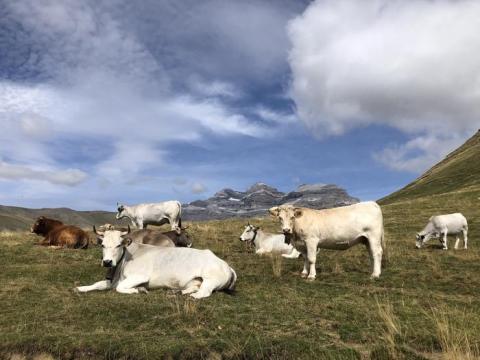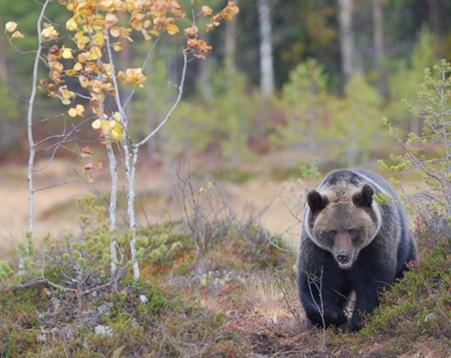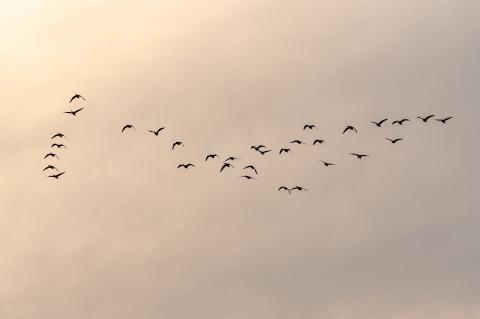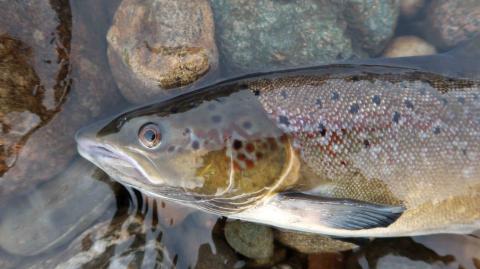
National Museum of Natural Sciences (MNCN, CSIC)
If you are the contact person for this centre and you wish to make any changes, please contact us.
Doctor in Ecology and postdoctoral researcher at the National Museum of Natural Sciences (CSIC) in Madrid
Research professor in the Department of Paleobiology at the National Museum of Natural Sciences, CSIC
Researcher at the National Museum of Natural Sciences of the Spanish National Research Council (CSIC)
Research Professor in the Department of Biodiversity and Evolutionary Biology at the National Museum of Natural Sciences (MNCN-CSIC)
Researcher in the Department of Biogeography and Global Change at the National Museum of Natural Sciences (MNCN-CSIC)
CSIC researcher at the National Museum of Natural Sciences (MNCN) specialised in hydrological risks in the context of global change and member of the Risk Commission of the Geosciences Connection
Senior Scientist in the Paleobiology Department of the National Museum of Natural Sciences (Madrid)
CSIC research professor in the Department of Biogeography and Global Change at the National Museum of Natural Sciences and coordinator of the PTI-Agriambio platform

Although extensive livestock farming has increased in some regions, it has also decreased in 42% of pastures dedicated to this purpose, according to a study published in the journal PNAS that analyses data from 1999 to 2023. The decline has occurred in wealthy areas of the world, such as Europe, North America and Australia, where consumption trends have shifted towards animals such as pigs and chickens. The increase was seen in poorer areas, specifically in Africa, Asia, South America and Central America. The authors of the study, one of whom is Spanish, state that ‘reductions in livestock stocking rates can have significant ecological consequences at regional and global scales,’ affecting biodiversity and fire regimes.

An international research project involving Spanish participation has analysed the distribution of brown bears in Europe and Turkey. To do this, the team studied more than three million locations belonging to some 3,000 bears, with data from 14 European and Turkish subpopulations in very different environments. The main conclusion is that bears occupy areas where the species that form part of their diet are distributed. The study, published in Global Change Biology, shows that the influence of climate change on these species also has an impact on the distribution of bears.

A team from China has analysed the genetic data of more than 450,000 people and identified a variant in a gene that contributed to increased height and basal metabolic rate in modern humans, especially when meat consumption increases. In addition to providing insight into evolutionary processes, the finding ‘also has important implications for understanding susceptibility and resistance to contemporary metabolic disorders such as type 2 diabetes, obesity and metabolic syndrome,’ according to the authors. The results are published in the journal Cell Genomics.

A meta-analysis that brings together data from 628 species of animals, plants and other organisms in terrestrial and marine ecosystems over the last three decades shows that most are losing genetic diversity, especially mammals and birds. ‘The threats affected two thirds of the populations we analysed and less than half are subject to conservation management measures,’ say the authors of the research, published in Nature.

An assessment of the extinction risk of freshwater fauna, covering more than 23,000 species, reveals that around 24% of the species studied are at risk of extinction. The analysis, published in Nature, identifies the main threats from pollution, dams, agriculture and invasive species. Decapods - such as freshwater crabs and shrimps - have the highest percentage of threatened species (30 %), followed by freshwater fish (26 %) and odonates - such as dragonflies (16 %).

A team of researchers has analyzed more than 300 human genomes from the last 50,000 years and has concluded that most of the gene flow we received from Neanderthals is attributable to a single period, which probably occurred between 50,500 and 43,500 years ago. In addition, Neanderthal inheritance underwent rapid natural selection in subsequent generations, especially on the X chromosome, according to a study published in Science.

The DANA that devastated the province of Valencia on 29 October, leaving more than 200 people dead and many missing, has been followed by another one, still located over the peninsula. How can we adapt to these extreme phenomena? What repercussions do they have on public health? How can the public prepare for them? The Science Media Centre España organised a briefing session with two experts and an expert from the CSIC to discuss these questions.

International research in which CREAF is participating estimates that more than 1,300 bird species will disappear over the next two centuries, which is more than double the number of extinctions recorded to date - 610 species have disappeared in the last 130,000 years. The study, published in the journal Science, shows that, for island endemics, the proportional losses have been and will be even greater. The authors warn that when a species becomes extinct, its role in the ecosystem may disappear with it.

An international team of scientists, including researchers from the CRG and the CNAG (Barcelona), have managed to recover DNA remains from a female woolly mammoth that died in Siberia 52,000 years ago. The novelty is that, for the first time, the remains conserve the three-dimensional structure in the form of chromosomes, which makes it possible to investigate the genes that were active. According to one of the authors of the study, the results of which are published in the journal Cell, this type of discovery "changes the rules of the game, because knowing the shape of the chromosomes of an organism allows us to assemble the entire DNA sequence of extinct creatures and obtain information that was not possible before".

Two-thirds of biological conservation actions improve biodiversity or slow its decline, a meta-analysis claims. The study highlights the effectiveness of interventions focused on invasive species control, habitat loss reduction and restoration, and protected areas. The article, published in the journal Science, brings together the findings of 186 previous studies.